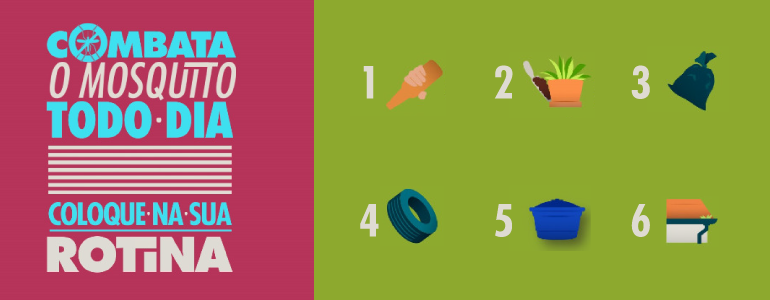In 2021, Bahia recorded more than 24,000 cases of dengue, about 14,000 probable cases of chikungunya and another 973 probable cases of Zika. The situation across the state is considered the most dangerous in the North Central and Southwest regions. The state authorities are increasingly concerned mainly by the summer, when high temperatures and accumulation of water from frequent rainfall attract the Aedes aegypti mosquito, which transmits the so-called arbovirus.
State epidemiological surveillance confirms that it conducts frequent surveys to identify and control potential Aedes breeding sites, and for this it relies on the work of state authorities, qualification of professionals and training of health workers; In addition to community awareness campaigns, they can and should participate in the fight against mosquitoes.
The coordinator of state control, Ana Claudia Nunes, explains that among the measures adopted, the creation of a room for coordination and control of arthropod viruses. In addition to training and monitoring procedures. “These procedures include district epidemiological surveillance and express primary care and specialist assistance, in order to guide management actions for differentiated prognosis.”
In the most serious cases, the state uses the smoke car with pesticide spraying, according to the infection rate. The Coordinator of Epidemiological Surveillance alerts the population to the role of the population in the prevention of arthropod-borne viruses, and states that there is still no vaccine for dengue, Zika and chikungunya.
Country Status
Brazil recorded a 42.6% decrease in the number of probable cases of dengue fever between 2020 and 2021. Last year, 543,647 infections were reported, compared to 947,192 in 2020. Data from the Health Monitoring Secretariat of the Ministry of Health.
Among Zika cases, there was a slight decrease of 15%, from 7,235 notifications in 2020 to 6,143 in 2021. On the other hand, chikungunya recorded an increase of 32.66% of cases, with 72,584 notifications in 2020 and 96,288 last year.
Public health specialist at Fundação Oswaldo Cruz (Fiocruz) in Brasilia, Claudio Mairowicz, highlights that 2020 has been a year for many cases, and therefore, one should not relax with lower infection rates in 2021.” Although there was no increase in One year to another, this is not a good comparison, because the previous year had large numbers,” he warns.
Necessary care
Due to the high temperatures and heaviest rainfall, summer is the time of year when the eggs hatch and leads to increased infections of dengue, chikungunya and Zika. So stay tuned for tips on preventing mosquito breeding:
- Turn bottles, buckets, and bowls over so water doesn’t accumulate.
- Put sand in dishes and plant pots.
- Close bags and litter well.
- Store tires indoors.
- Cover the water tank well.
- Clean gutters.
Therefore, the Ministry of Health stresses the need for every citizen to inspect the places where he lives or works so that they are not a repository of mosquito eggs. The topic is covered in the daily anti-mosquito campaign.
“The campaign makes the case for everyone to seek responsibility within their own backyard and workplace and use ten minutes of the week to review key places where mosquito breeding sites may be and eliminate those breeding sites, not allowing mosquitoes to give birth,” asks the General Coordinator for Arbovirus Surveillance at the Department of Health, Cássio Peterka.
To avoid mosquito spread, residents should check gutters, bottles, tires, litter, plant pots and water tanks. Do not leave the water standing. Fight mosquitoes every day. Put it into your routine.
See on the map the rate of dengue fever in your municipality

“Wannabe internet buff. Future teen idol. Hardcore zombie guru. Gamer. Avid creator. Entrepreneur. Bacon ninja.”

